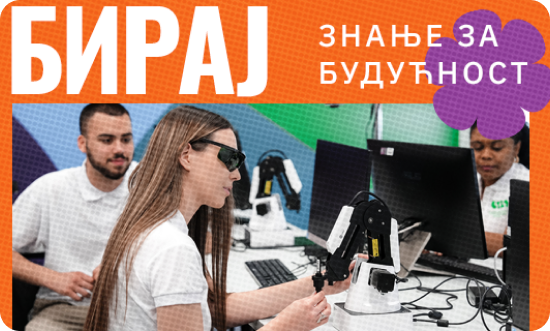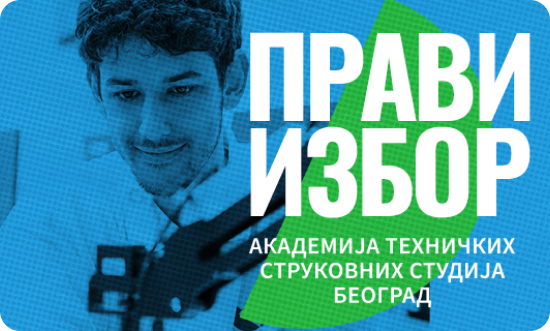

Erasmus+
‘’Erasmus+ is the EU Programme in the fields of education, training, youth and sport for the period 2021-2027. Education, training, youth and sport are key areas that support citizens in their personal and professional development. High quality, inclusive education and training, as well as informal and non-formal learning, ultimately equip young people and participants of all ages with the qualifications and skills needed for their meaningful participation in democratic society, intercultural understanding and successful transition in the labour market. Building on the success of the programme in the period 2014-2020, Erasmus+ strengthens its efforts to increase the opportunities offered to more participants and to a wider range of organisations, focusing on its qualitative impact and contributing to more inclusive and cohesive, greener and digitally fit societies.’’
The main priorities of Erasmus+ Programme are: Inclusion and Diversity, Digital Transformation, Environment and fight against climate change and Participation in democratic life.
The Erasmus+ Programme supports implementation of the following Actions in the 2021-2027 period:
- KEY ACTION 1 (MOBILITY OF INDIVIDUALS) – Mobility of learners and staff; Youth participation activities; Discover EU activities; Language learning opportunities.
- KEY ACTION 2 (COOPERATION AMONG ORGANISATIONS AND INSTITUTIONS) – Partnerships for Cooperation (Cooperation Partnerships, Small-scale Partnerships); Partnerships for Excellence (European Universities, Centres for Vocational Excellence, Erasmus+ Teacher Academies, Erasmus Mundus Action); Partnerships for Innovation (Alliances for Innovation, Forward-looking Projects); Capacity Building projects in the field of youth; Not-for-profit sport events; Online platforms.
- KEY ACTION 3 (SUPPORT TO POLICY DEVELOPMENT AND COOPERATION) – The European youth together action, targeting youth organisations at grass root level which want to establish partnerships across borders, i.e. which aim at adding a European dimension to their activities. The purpose is to encourage new applications from organisations that are not already well established at European level.
- JEAN MONNET ACTIONS – Jean Monnet Action in the field of Higher Education; Jean Monnet Action in other fields of education and training; Support to designated institutions.
More information is available at https://ec.europa.eu/programmes/erasmus-plus/node_en
Erasmus charter for higher education
The Academy of Applied Technical Studies Belgrade is attributed with transitory accreditation in accordance with the procedure established by European Commission and the Executive Agency.
The Erasmus code attributed to the Academy of Applied Technical Studies Belgrade is RS BELGRAD24
Erasmus+ student charter
Svaki student koji je učestvovao u u programu Erasmus+ nakon selekcije će od ustanove koja ga šalje na mobilnosti dobiti Studentsku Erasmus+ povelju. U Studentskoj povelji su istaknuta prava i obveze studenata koji učestvuju u Erasmus+ programu . Tekst Povelje možete pogledati ovde.
Erasmus policy statement
Participation in Erasmus+
The actual orientation of the Academy of Applied Technical Studies Belgrade (hereinafter Academy) can be described by its main principles – the progress in quality of professional education and promotion a sense of community among students and staff. Regarding these principles, and by participating in the Erasmus+ Programme the Academy expects to enhance the quality of education, by:
- exchanging the knowledge, skills, experiences and examples of good practices, that will be reflected in students well-equipped with necessary knowledge, transversal, language and intercultural skills;
- developing lifelong learning, which will be reflected in re- and up-skilled individuals who will be prepared for job transitions;
- attracting talented students and teachers who will transfer their knowledge and professional and intercultural skills;
- internationalisation of teaching and learning through growing the number of outgoing student and teaching mobility;
- modernising organisational structure and leadership based on the examples of good practices and experience gained abroad;
- intensifying the cooperation with HEIs and enterprises from Western Balkans, EU, and wider environment in order to create the network of knowledge;
The Academy also expects to enhance the promotion of social cohesion, by:
- increasing diversity within Academy’s community through the growing number of international students and staff;
- reinforcing tolerance and non-discrimination among people on any basis;
- increasing inclusion and equality through stimulating the students from disadvantage groups to participate in Erasmus+ Programme;
- developing awareness within Academy’s community about the importance of preserving national and European cultural heritage and identity.
It cannot be said that the Academy has the character of an international HEI, yet. The process of internationalisation started at one Academy’s College a few years ago, by participation in Erasmus Mundus and then in Erasmus+ projects. However, the Academy recognised the importance of internationalisation for the strategic development of teaching and learning, and for establishing the organisational culture ―without boundaries‖. The Academy is dedicated to the creation, transfer and exchange of knowledge and skills, emphasizing knowledge as a fundamental value that permeates all its activities – higher education, professional research and development and cooperation with the society. The Academy has established cooperation with the satisfactory number of HEIs from EU, Western Balkans and Africa, and has had experiences with teacher and staff mobility (under KA107), as well as student and teacher study visits.
By participating in the Erasmus Mundus Joint Master Degrees, as well as in the Mobility programmes, the Academy will strive to reinforce exchanging of experience, knowledge and examples of good practices, which is the necessity for improving the knowledge and skills of the students. Exchanging experiences and knowledge through Partnerships for Cooperation and Partnerships for Innovation, will positively contribute to establishing lifelong learning in the Academy, and enhancing the awareness of employers in Serbia about their major role in creation and realisation of short cycle of studies.
Additionally, participation in Erasmus+ Programme will contribute to modernisation of education within the Academy – graduates will be equipped with necessary knowledge and skills required by labour market; students will develop language and intercultural skills; and be prepared to deal with diversity. The educators will benefit from exchanging knowledge, experiences, introducing with new approaches and knowledge, meeting and educating the students from different backgrounds. At European Higher Education Area (EHEA) level, these improvements will positively affect in ensuring ―highly-qualified and flexible workforce as necessity of a resilient economy‖; on inclusivity of education as a support to social cohesion; enhancing active citizenship through education; reinforcing the awareness about different cultures and values, and importance of European identity. For the purpose of effective implementation of Erasmus+ projects, the Academy developed Strategy of internationalisation and modernisation, Guidelines for mobility programme, and other necessary documents (Student/Staff Guide, Course Catalogue, etc.). Additionally, the Academy has established International Office that provides main support in Erasmus+ activities, and promotes opportunities and contributions of participation in Erasmus+ Programme among students and staff.
Strategy, objectives and impact
The Academy is oriented to the leading position in the area of professional education in The Republic of Serbia, and to be recognized at regional and international higher education area and professional environment, where students acquire competitive and global recognizable competencies. In this sense, the strategic objectives are defined:
- Equip students with relevant knowledge and skills they need to respond on demands of national and international (primarily EU) labour market;
- Develop short cycle of studies for the purpose of re- and up-skilling in order to help individuals in the transition between jobs, and in creating jobs by themselves;
- Attract international students and teachers in order to enhance the quality of teaching and learning, and the diversity of student and teacher population;
- Strengthen the Academy profile in the regional, European and international educational area;
- Reinforce social integration and inclusivity within the Academy.
Regarding geographical location of the Academy (Belgrade, Serbia), it is expected that the Academy is primarily oriented to more intensive cooperation with HEIs and enterprises from Western Balkans and countries from neighbour – Croatia and Slovenia, and from EU. Besides geographical location, there are similarity in our mentality, language and educational systems. By cooperating with institutions and organisations from EU, the Academy expects to upgrade quality of education, enhance social cohesion and to contribute on position of Serbian professional education system at EHEA. Based on previous good cooperation with HEIs from Africa, the Academy will build stronger relationship with partner institutions and it will establish new partnerships. This cooperation is at the service of the quality of education, and the development of cross-functional skills (intercultural, languages, innovation) essential to European competitiveness. For the purpose of implementation strategic objectives the Academy developed Action Plan.
The actions under the Objective 1:
International classes and Mobility – The Mobility programmes are helpful in the Academy intention to create international classes and in stimulation the teachers to apply them. The international classes have to be taught in Serbian and English language respectively, which will positively affect student and teacher bilingual skills. Additionally, international classes will stimulate achieving the intercultural skills among students and teachers.
The actions under the Objective 2:
Stronger cooperation with employers and Internationalisation of alumni – The employers will have major role in creating and in realisation the short cycle of studies and training courses. Enhancing the actual alumni and introducing the international dimension through working together with alumni communities at regional and EU level.
The actions under the Objective 3:
Summer weeks and International student recruitment – The main idea of summer weeks is to gather international and native students, as well as teachers, around joint actions (design week; week of apprenticeships; activities directed to local community and environmental protection; etc.). The Academy plans to increase the number of students from different culture, ethnic and socio-economic backgrounds, to enhance inclusion and equality, by organising international student recruitment. The international students who will participate in Mobility Programmes or in the other types of the Erasmus+ Programme may decide to continue their studying at the Academy. Additionally, exchanging experiences and examples of good practices with partner institutions will refresh the Academy’s marketing and recruitment strategies.
The actions under the Objective 4:
Develop the network of HEIs and enterprises and Reconsideration of partnership policy – The main idea of the network is to provide exchange and develop new knowledge and skills, and create synergy. The Academy strongly believes that the effect of synergy will be higher than it is affected individually. The participation in any action under KA1 and KA2 will positively affect on the existing cooperation strength, and establishing new partnerships which are the crucial for creating a network among HEIs from Western Balkans and EU. Moreover, the Academy will strengthen its profile at regional and EU level by networking and participating in the Erasmus+ Programme. The collaboration with other institutions, their knowledge and experiences, will be helpful in redesigning the Academy’s partnership policy.
The actions under the Objective 5:
Develop orientation programme and Create additional services – By orientation programme the Academy will ensure effortless adaptation to the new surroundings for the international students and staff. As the Academy does not have too much experience with international students and staff, the participation in the Erasmus+ Programme will help the Academy to develop and establish the orientation programme. In addition, the good practices of other international offices and their experiences will be important in creating additional (support) services for international students and staff. The realisation of mentioned actions will ensure achieving the strategic objectives that are directed to modernisation at institutional level and positioning the Academy at regional and EU level.
The Academy envisages that participation in the Erasmus+ Programme will contribute to the whole community within the Academy. Students and teachers will have a chance to improve their knowledge, skills and attitudes, as well as language and intercultural skills, through studying and teaching in different learning and cultural environments. The staff will broaden their horizons through exchanging experiences, knowledge and ideas. The students from disadvantage groups will be encouraged to participate in Mobility Programmes. In addition to improvements in their knowledge and skills, they will surely advance in the sense of self-confidence, belonging to the community, motivation to learn and to continue their education. Other students and staff who will not participate in Erasmus+ programmes will benefit too, through disseminated experiences from the previous groups, and from the incoming students, teachers and staff. The Academy estimates that participation in Erasmus+ Programmes will encourage employees to develop ideas for the new Erasmus+ projects, enhance social cohesion among students and staff.
The graduates will benefit from the alumni internationalisation and establishing the lifelong learning. Their sense of belonging to the Academy will be enhanced. They will be included in the international community and they will have the chance to exchange knowledge and experiences with other members; participate in the Academy`s future projects; to reinforce their own intercultural skills and to promote the awareness of diversity within their communities.
The institution will benefit from its employees in terms of enhancing knowledge, skills and attitudes which are the crucial for establishing the organisational culture ―without boundaries‖; modernising study programmes and teaching and learning processes and activities of the non-teaching support.
Additionally, it is expected that the quality of the International Office service will be improved. Increasing the participation in the Erasmus+ Programme, the staff of International Office will be more proficient regarding EU legislation, equipped with necessary skills, intercultural oriented, and willing to upgrade actual services. Consequently, the changes in the attitudes and behaviours among students and staff and their positive experiences will produce greater interests to other individuals for involvement in the future Erasmus+ projects. Moreover, the internationality of the Erasmus+ Programme will have the positive impact on social integration at the institutional level. Students and staff will have the opportunity to meet and work with the people from different cultural, ethnical and socio-economic backgrounds.
Finally, these improvements will positive affect to objectives of European Education Area. Improvements in the student and staff knowledge, attitudes and skills, as well as developing joint curriculum will enable more flexible movement of learners and workforce between education systems in different countries.
Building of human capital ensures future talents necessary for continual growth and development. The mobility programmes and established partnerships will make easier transnational cooperation and enable institutions to leverage their strengths and resources; enhance inclusivity of education and active citizenship; and reinforce the awareness about different cultures and values, and importance of European identity.
Indicators
For each strategic objectives, regarding Action Plan, the quantitative and qualitative indicators are defined:
Objective 1: Equip students with relevant knowledge and skills they need to respond on demands of national and international (primarily EU) labour market.
Indicators:
- The 10 students and 5 staff will participate in mobility programme until 2023;
- Satisfied students and staff with the quality of mobility programmes. Satisfaction will be measured by questionnaire after mobility;
- Increased in the employment rate of graduates who participated in mobility programmes until 2027;
- Realisation of 15 international classes until 2023;
- Satisfied students with international classes. Satisfaction will be measured by questionnaire after international classes.
Objective 2: Develop short cycle of studies for the purpose of re- and up-skilling in order to help individuals in the transition between jobs, and in creating jobs by themselves.
Indicators:
- Developed one training course/short programme of study in partnership with employers until 2023;
- Increasing in quality of knowledge and skills among students who will attend the short programme. The quality will be measured before and after programme;
- The number of international mobility participants who will join the alumni 2021-2027.
Objective 3: Attract international students and teachers in order to enhance the quality of teaching and learning, and the diversity of student and teacher population.
Indicators:
- The first summer week in 2023;
- The international recruitment will start in 2022;
- Increasing in number of international teachers who will participate in mobility programmes, summer weeks, annual conferences organised by the Academy, and similar events from 2021 to 2027.
Objective 4: Strengthen the Academy profile in the regional, European and international educational area.
Indicators:
- Plan of network will be created until 2022;
- The actual partners will join the network during the 2022;
- Attract the new members from Western Balkans, EU, and other regions (2022-2027);
- Joint activities on international projects, conferences, exchanges of teachers, etc.
Objective 5: Reinforce social integration and inclusivity within the Academy.
Indicators:
- The plan of orientation programme will be developed until the end of 2021;
- The orientation programme will start with the first mobility;
- Involvement of native students/staff in realisation of the orientation programme;
- The Satisfied international students/staff with orientation programme. Satisfaction will be measured by questionnaire after orientation programme.
- One employee from International Office will be engageed with students/staff with special needs;
- The additional services will be developed in line with students/staff needs and recommendations.









